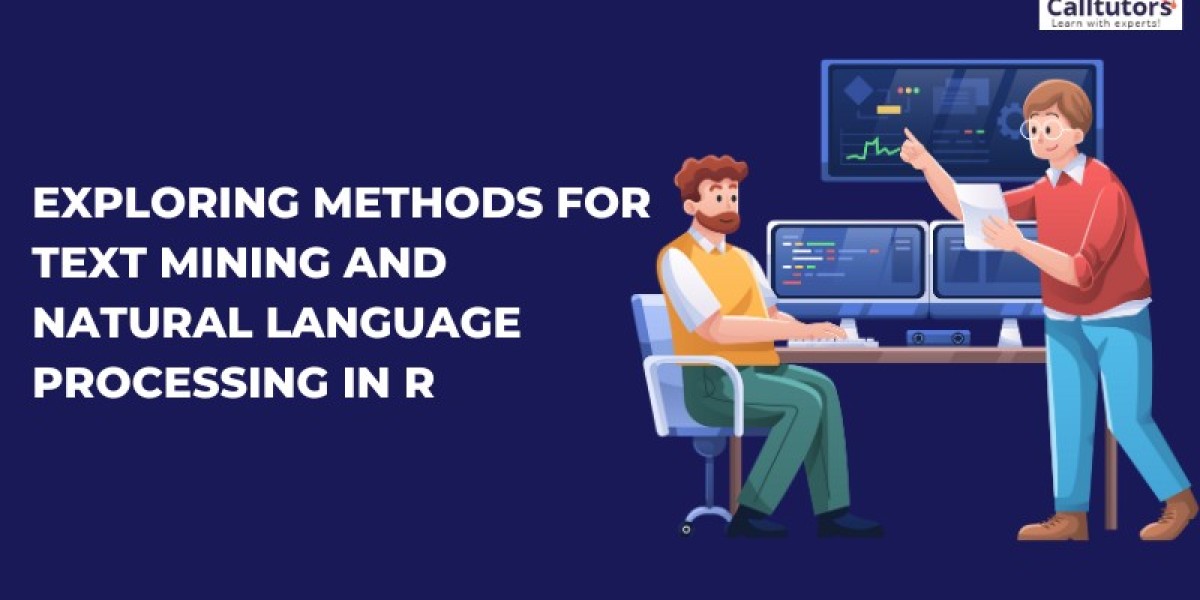In the modern digital world, textual data is everywhere. There is a great amount of information available in the form of social media posts, product evaluations, news stories, and academic papers. Text analysis demands the use of specific methods and equipment. The text mining and natural language processing (NLP) packages available in R provide a robust framework for evaluating and extracting useful information from textual input. This blog will explore text preprocessing, sentiment analysis, topic modeling, and text classification approaches as we dig into the world of text mining and NLP with R.
Note: Need AutoCad assignment help service? Then get the best AutoCAD assignment writing service from our professional experts to achieve good grades. So, Order Now!
Preprocessing Text:
Text preprocessing entails cleaning and altering raw text data to make it acceptable for analysis. Text preprocessing is a crucial stage in text mining. R has a number of packages for text preprocessing:
Text mining (tm): The tm package includes tools for formatting text data, eliminating punctuation, changing text to lowercase, eliminating stop words (common words like "the," "is," etc.), and stemming (reducing words to their root form). These preprocessing procedures aid in enhancing the effectiveness of text analysis.
String r: The string r package offers tools for complex string operations like pattern matching, substring extraction, and pattern replacement in text files. It is especially beneficial for text normalization and cleaning.
Sentimental Evaluation:
The process of identifying the sentiment or emotional tone expressed in text is known as sentiment analysis. R offers the following sentiment analysis packages:
SentimentR: Using lexicons or dictionaries that provide sentiment ratings to words, the SentimentR package enables sentiment analysis. It enables you to evaluate the tone of certain phrases or complete papers, assisting you in comprehending the general attitude shown in text data.
Syuzhet: Using a variety of methods, including the Valence Aware Dictionary and Sentiment Reasoner (VADER), the syuzhet package provides a suite of sentiment extraction algorithms. This tool uses contextual data to provide a more subtle analysis of sentiment.
Using Topic Models
A method for finding latent topics or themes in a group of documents is topic modeling. R has the following subject modeling packages:
Latent Dirichlet Allocation (LDA) LDA, a well-liked topic modeling algorithm, is implemented by the topicmodels package. Each word in a document is thought to be connected to one of a number of different themes by LDA, which uses this assumption to identify subjects. It enables you to investigate the underlying ideas included in a body of writing.
The STM package provides sophisticated methods for determining topic proportions and examining topic relationships. It allows for a more advanced analysis of textual data and can manage datasets where subjects change over time or across various document information.
Textual Category:
Text documents are classified by applying predetermined categories or labels to them. R offers the following packages for classifying text:
Caret: The caret package provides functions for creating and assessing text categorization models using a variety of techniques, including support vector machines (SVM), random forests, and decision trees. It offers resources for cross-validation, model evaluation, and feature selection, making it simpler to create reliable classifiers.
Text classification is made simple with the help of the textTinyR package. You may use its easy syntax to train and test categorization models. It allows you to categorize text documents according to their content and supports a number of methods, such as Naive Bayes and k-nearest neighbors (k-NN).
Conclusion:
R offers a potent toolkit for extracting insights from textual data, including text mining and natural language processing (NLP) approaches. In this blog, we have looked at a number of methods that help academics and data analysts preprocess text, analyze sentiment, find hidden subjects, and classify texts.
tm, stringr, SentimentR, topicmodels, caret, and textTinyR are just a few of the many packages in R's vast ecosystem that provide a wide range of features for text mining and NLP jobs. These software packages offer reliable methods for text data cleansing and transformation, sentiment analysis, topic modeling, and text categorization, enabling users to better comprehend and extract valuable insights from textual data.








